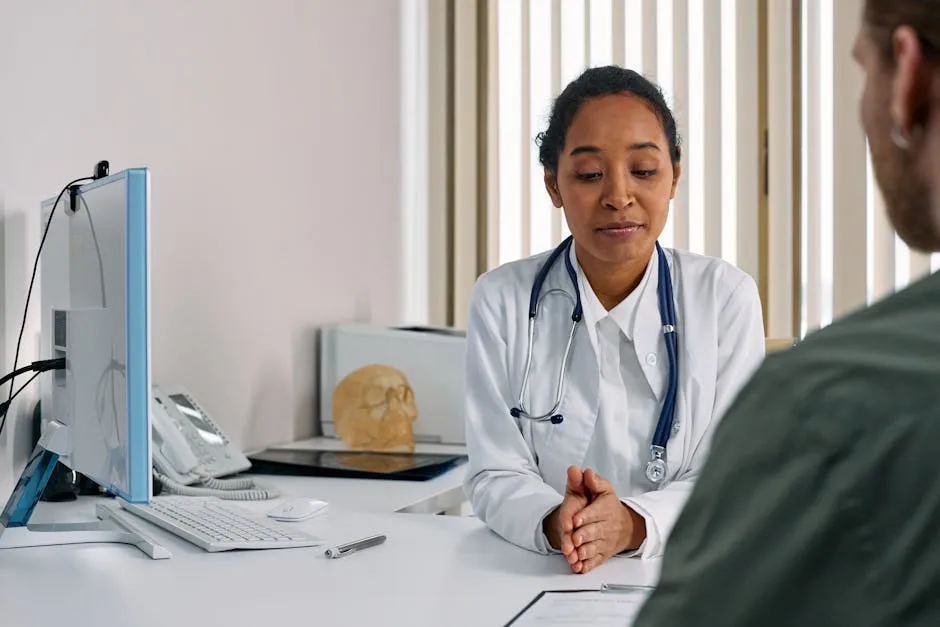
Why Is My Poop Dark Green? Understanding the Causes and Implications
Introduction
Noticing changes in stool color can be concerning. Dark green poop is one such change. It can happen for various reasons, ranging from harmless dietary choices to more serious health issues. Understanding these changes is crucial for your health.
Speaking of dietary choices, have you ever thought about adding spinach powder to your smoothies? This nutrient-packed superfood is a great way to boost your vitamin intake without the hassle of cooking. Just a spoonful can help you feel like a superhero while keeping your digestive system in check!

Causes of Dark Green Stool
Dietary Influences
Food choices play a significant role in stool color. Foods rich in chlorophyll, like spinach, kale, and broccoli, can lead to dark green stools. These vegetables contain high levels of chlorophyll, which can color your poop. Additionally, colored food dyes in processed foods, such as candies and drinks, may also alter stool color. If you have a fiber-rich diet, the rapid transit through your intestines may contribute to this color change as well.
If you want to take your kale game to the next level, try some kale chips. They make for a crunchy snack that satisfies your cravings while offering all the nutritional benefits of fresh kale. Plus, they’re a lot more fun than just munching on a salad!

Kale is one of the foods that can influence stool color due to its high chlorophyll content. Discover why kale is significant in various contexts.
However, it’s essential to remember that not every instance of dark green poop is alarming. While occasional changes can be linked to what you eat, persistent changes should prompt a conversation with a healthcare provider.
Medications and Supplements
Certain medications and supplements can change the color of your stool. For instance, iron supplements are known to cause dark green or even black stools. This happens because unabsorbed iron interacts with bile in the intestine. If you’re taking iron and notice this change, it’s typically harmless, but still good to keep your doctor informed. If you’re looking for a quality option, check out this iron supplement that can help you meet your daily needs!
Antibiotics can also play a role in altering stool color. They disrupt the balance of gut bacteria, which can lead to changes in digestion. This often results in green stools, especially if you experience diarrhea. Have you recently finished a course of antibiotics? If yes, this might explain your green poop.
Other medications can contribute as well. Some antidepressants and medications for gastrointestinal disorders can lead to inconsistencies in stool color. If you’re on any medication and notice these changes, consult your healthcare provider for guidance.
Gastrointestinal Conditions
Several gastrointestinal conditions can lead to rapid transit in the intestines. For example, infections like gastroenteritis can speed up digestion. This quick movement prevents bile from breaking down, often resulting in green stool. If you’re experiencing diarrhea along with this, it could be linked to an infection.
Chronic conditions like Crohn’s disease and celiac disease can also affect stool color. Both conditions cause inflammation in the intestines, which can disrupt normal digestion. If you have any of these conditions, changes in stool color may occur frequently. Always keep an eye on your symptoms and discuss any concerns with your doctor.

Bile and Digestion
Bile plays a crucial role in digestion. It is a greenish-yellow fluid produced by the liver and stored in the gallbladder. Bile helps break down fats and gives stool its typical brown color. However, when digestion is rapid, bile may not have enough time to change color, leading to green stool.
For instance, when food moves too quickly through the intestines—often due to diarrhea—bile remains green. This is a common occurrence and often resolves as digestion normalizes. Understanding this process can help ease concerns about occasional green stools.
Symptoms to Watch For
When to Seek Medical Attention
While green stool is often harmless, certain symptoms may indicate a serious issue. If you experience persistent diarrhea, it’s essential to consult a healthcare provider. Additionally, if you notice blood in your stool, this could be a sign of a more serious condition.
Other concerning symptoms include severe abdominal pain, unexplained weight loss, or fever. If you encounter any of these symptoms alongside green stool, seek medical advice promptly. Your health and peace of mind are important, so don’t hesitate to reach out to a professional if you’re unsure.

Examples of Concerning Symptoms
If you notice green stool, pay attention. Certain symptoms could signal a more serious issue. If you experience severe abdominal pain, it’s time to consult a healthcare provider. Unexplained weight changes can also be a red flag. They may indicate an underlying condition that needs attention.
Fever is another symptom to watch for. If your body temperature rises without a clear reason, don’t ignore it. These symptoms can relate to digestive disorders or infections. Always take note of what your body is telling you. If you experience any of these symptoms alongside green stool, reach out to a healthcare professional promptly.
Lifestyle Factors and Remedies
Adjusting Your Diet
If green stool concerns you, consider your diet. Reducing your intake of green foods might help normalize stool color. Foods like spinach and kale, while nutritious, can contribute to the green hue. Keep in mind that artificial food dyes can also play a role. Limiting these can lead to noticeable changes.
Hydration is equally important. Drinking enough water aids digestion and can improve stool consistency. If you’re looking for a great way to track your water intake, consider getting a water bottle with a time marker. This nifty gadget can remind you to stay hydrated throughout the day!

Monitoring Digestive Health
Keeping track of your stool color and consistency is a smart practice. This awareness can help you identify patterns and changes over time. If you notice persistent green stool, it may be time to consult a healthcare provider. Regular health check-ups play a crucial role in maintaining digestive health. They allow for early detection of potential issues, ensuring your well-being.
Being aware of your digestive health is essential. If something feels off, don’t hesitate to seek medical advice. It’s always better to be proactive about your health. Keeping a close eye on your bowel habits can lead to timely interventions if needed. And for those who like to keep everything organized, consider a health and wellness planner to track your diet and symptoms!

Conclusion
In summary, dark green poop can arise from various causes. It’s often linked to dietary choices, medications, or digestive conditions. While occasional changes may not be alarming, persistent alterations should prompt a conversation with your healthcare provider. Always pay attention to accompanying symptoms, as they can provide valuable insights into your health. If you have concerns about your digestive health, don’t hesitate to seek professional advice. Remember, your well-being is worth the attention!
Monitoring stool color is crucial for understanding your digestive health. Dark green poop may not always signal a problem, but it’s essential to pay attention to any accompanying symptoms. If you notice persistent changes in your stool color, especially if paired with discomfort, seeking medical advice is wise. Your health matters, and a healthcare provider can provide valuable insights. And while you’re at it, maybe try sipping on some organic green tea to support your overall well-being!
FAQs
Is dark green poop always a cause for concern?
Dark green poop can be benign. However, if you notice persistent changes along with other symptoms like pain or diarrhea, it’s best to get evaluated by a professional. Ignoring these signs can lead to missed health issues.
What foods can cause dark green stool?
Foods high in chlorophyll, such as spinach, kale, and broccoli, can lead to dark green stool. Additionally, processed foods with artificial coloring, like candies or drinks, may also alter stool color. If you’ve recently enjoyed a salad or smoothie, that could explain the change.
Can medications cause green poop?
Yes, certain medications can affect stool color. Iron supplements are known to cause dark green or even black stools. Antibiotics can disrupt gut bacteria, potentially leading to greenish stools, especially in cases of diarrhea. If you suspect medication is the culprit, discuss it with your doctor.
When should I seek medical help for green poop?
If you notice consistently green poop, it might be time to consult a healthcare provider. Pay attention to specific symptoms that could indicate a more serious issue. Persistent diarrhea is one key sign. If your poop is consistently green and accompanied by diarrhea lasting more than two days, it’s wise to seek medical advice. Other concerning symptoms include blood in your stool. This could signal bleeding in your digestive tract, which needs immediate attention. Severe abdominal pain is another red flag. If you experience this alongside green stool, don’t hesitate to reach out to a doctor. Unexplained weight loss can also be a cause for concern. If your pants fit differently without any dietary changes, it’s worth discussing with your healthcare provider. Lastly, if you develop a fever along with green poop, it could indicate an infection. Call your doctor to discuss your symptoms and determine the next steps.
Is green poop common in babies and children?
Yes, green poop can be quite common in infants and children. For newborns, the first stool, known as meconium, is usually dark green. As they start consuming breast milk or formula, their stool color may change as well. In older babies, green poop can result from their diet. If they consume foods with high chlorophyll content, such as spinach or broccoli, this can lead to green stools. Additionally, iron-fortified formulas can also contribute to this color change. In many cases, green poop is normal and not a cause for concern. However, if it occurs alongside other symptoms like irritability or diarrhea, it’s best to consult a pediatrician. Understanding your child’s diet can help you determine if the color change is expected or if further evaluation is necessary.
Can lifestyle changes help restore normal stool color?
Absolutely! Making some dietary adjustments can help normalize stool color. If you suspect green poop is due to your diet, reducing green vegetables like spinach and kale might be beneficial. Incorporating a variety of other foods can also help. Whole grains, fruits, and lean proteins can balance your diet and promote healthy digestion. Additionally, hydration plays a crucial role. Drinking plenty of water aids digestion and can improve stool consistency. Don’t forget fiber! A fiber-rich diet supports regular bowel movements and overall digestive health. Foods like oats, berries, and legumes are excellent sources. By adjusting your diet and staying hydrated, you can support your digestive system and potentially restore your stool color to its normal shade.
What should I do if my poop is consistently green?
If you find that your poop is consistently green, it’s important to consult with a healthcare provider. Persistent changes in stool color can sometimes indicate underlying health issues that need attention. Start by keeping a record of your diet. Note any foods, medications, or supplements you take that might contribute to the color change. Share this information with your doctor, as it can help identify the cause. Don’t hesitate to discuss any accompanying symptoms as well. If you experience diarrhea, abdominal pain, or weight changes, mention these during your consultation. Your healthcare provider can help rule out serious conditions and suggest appropriate steps to take. Remember, proactive communication about your health is always beneficial!
Please let us know what you think about our content by leaving a comment down below!
Thank you for reading till here 🙂
All images from Pexels




